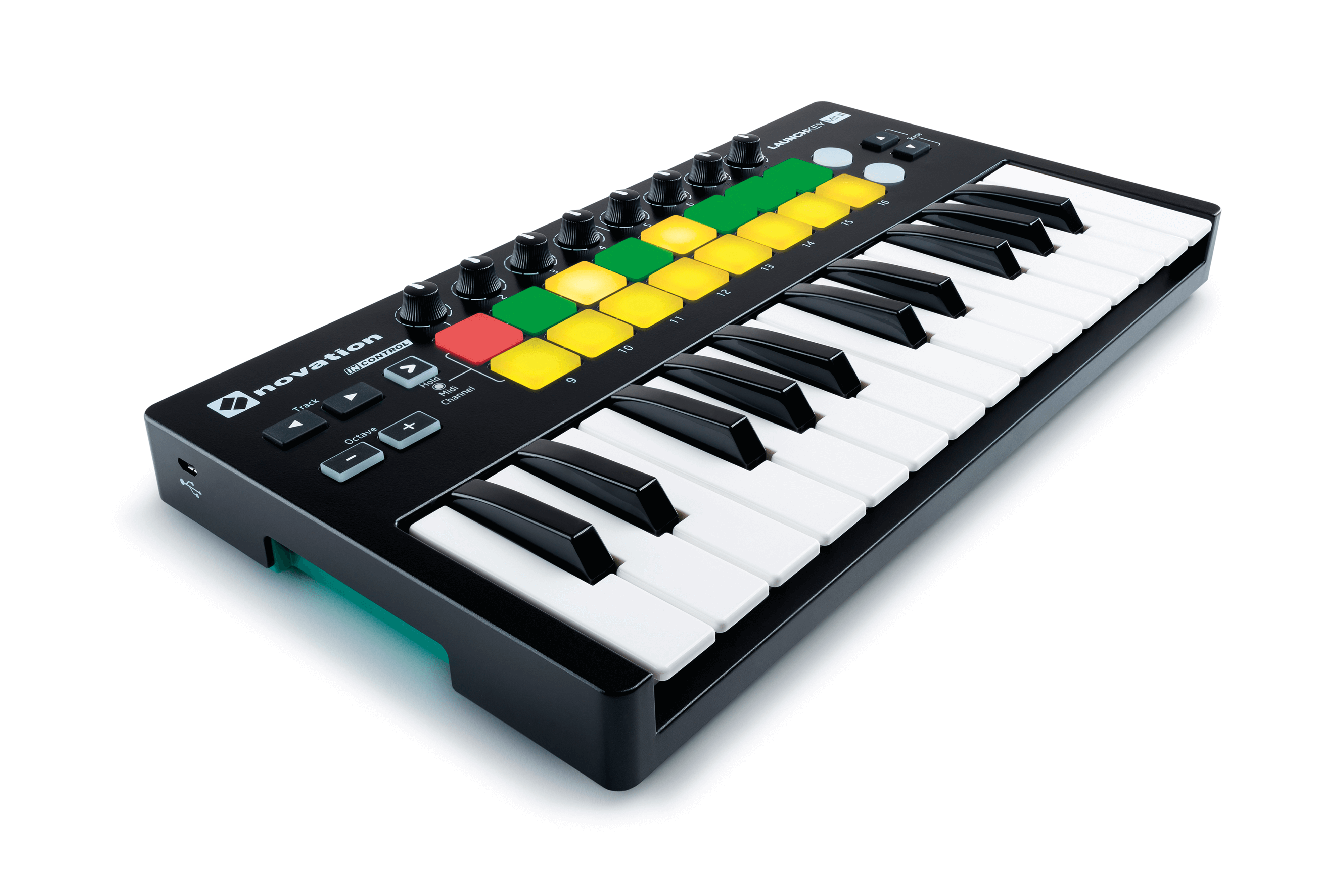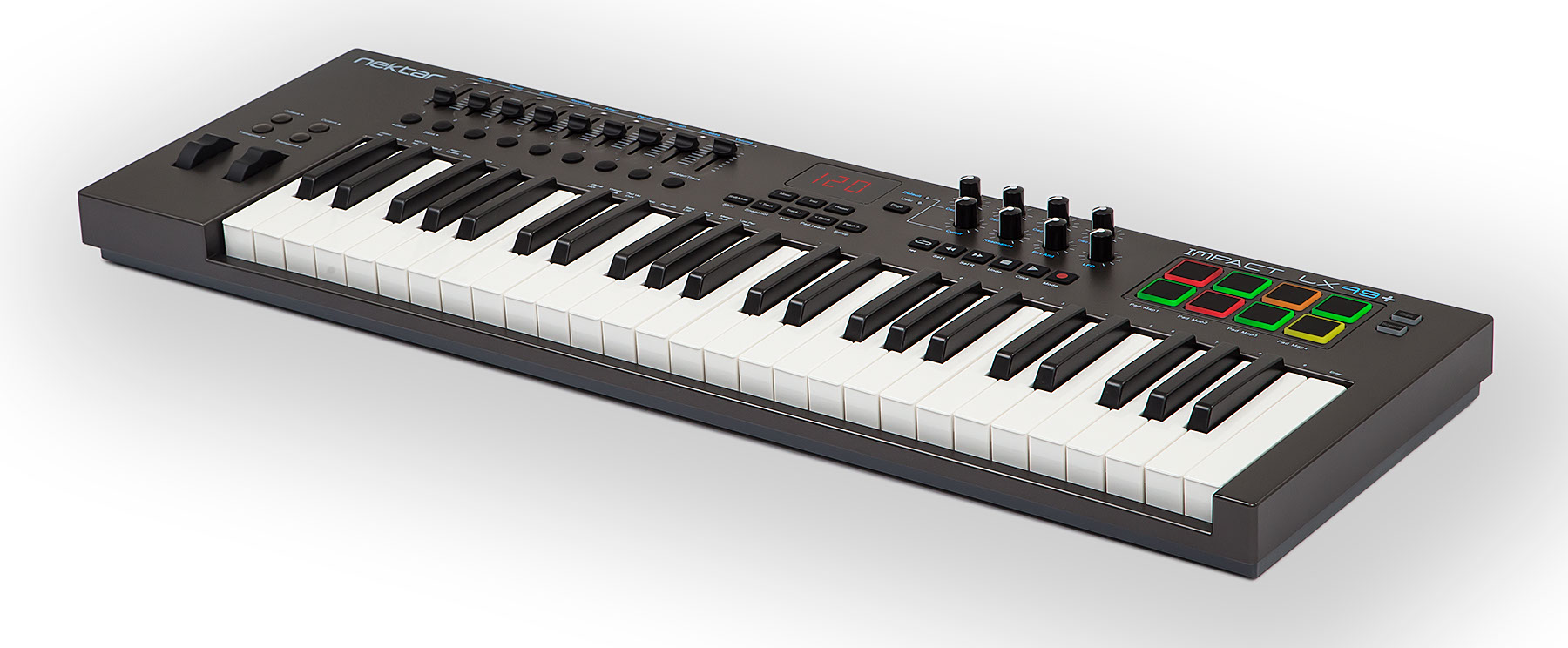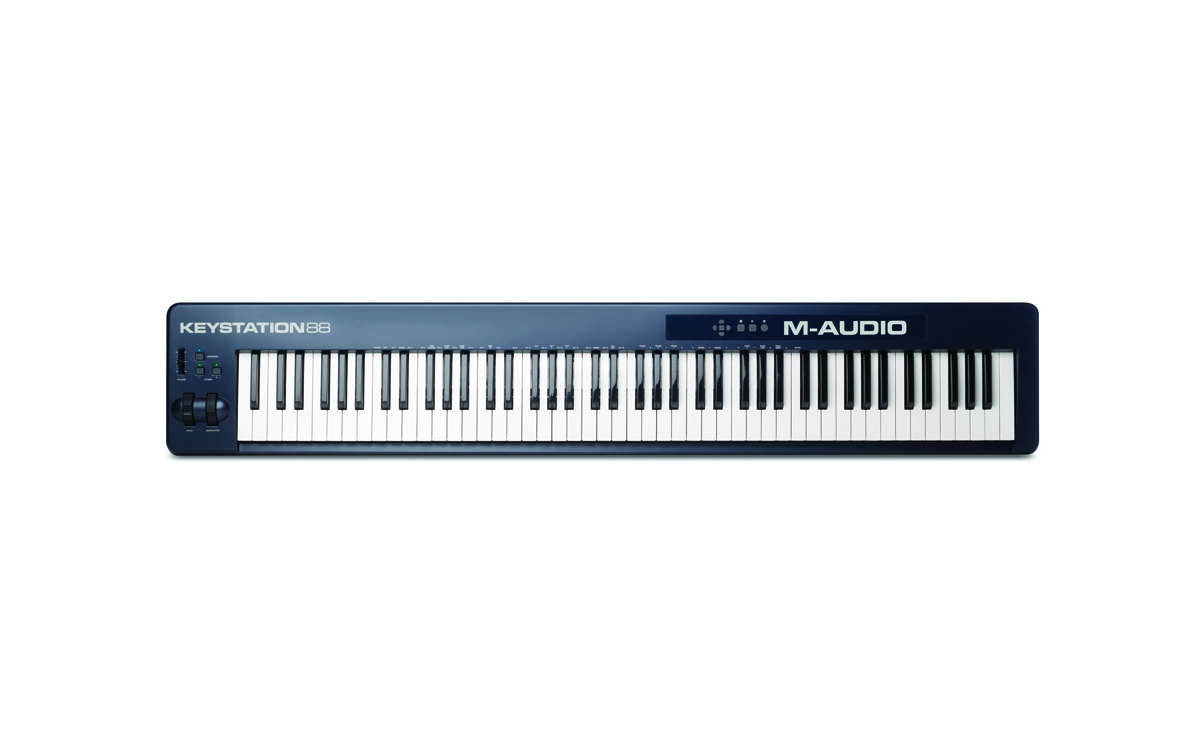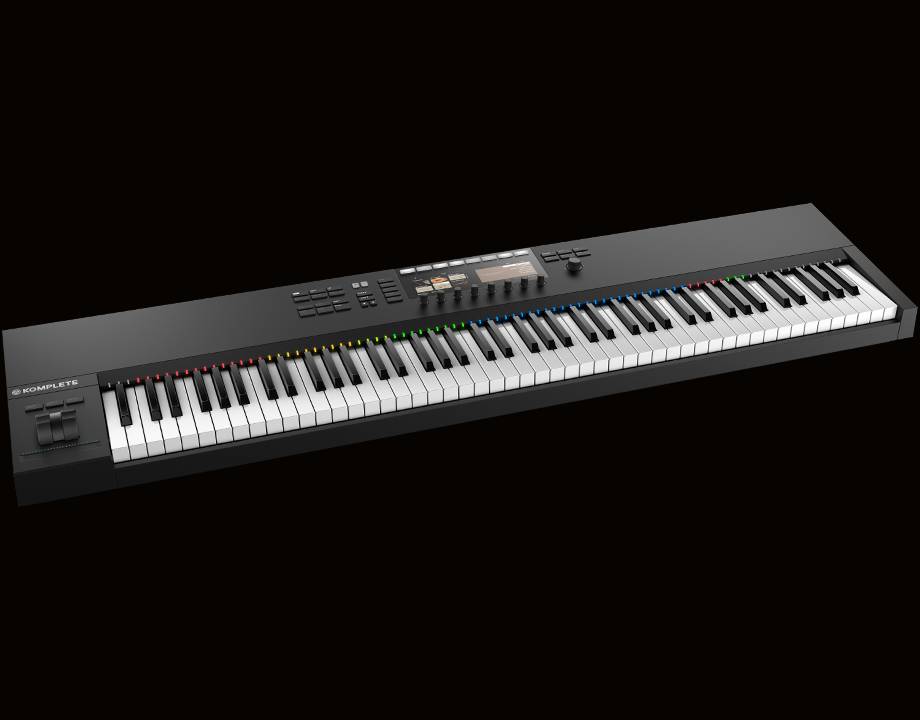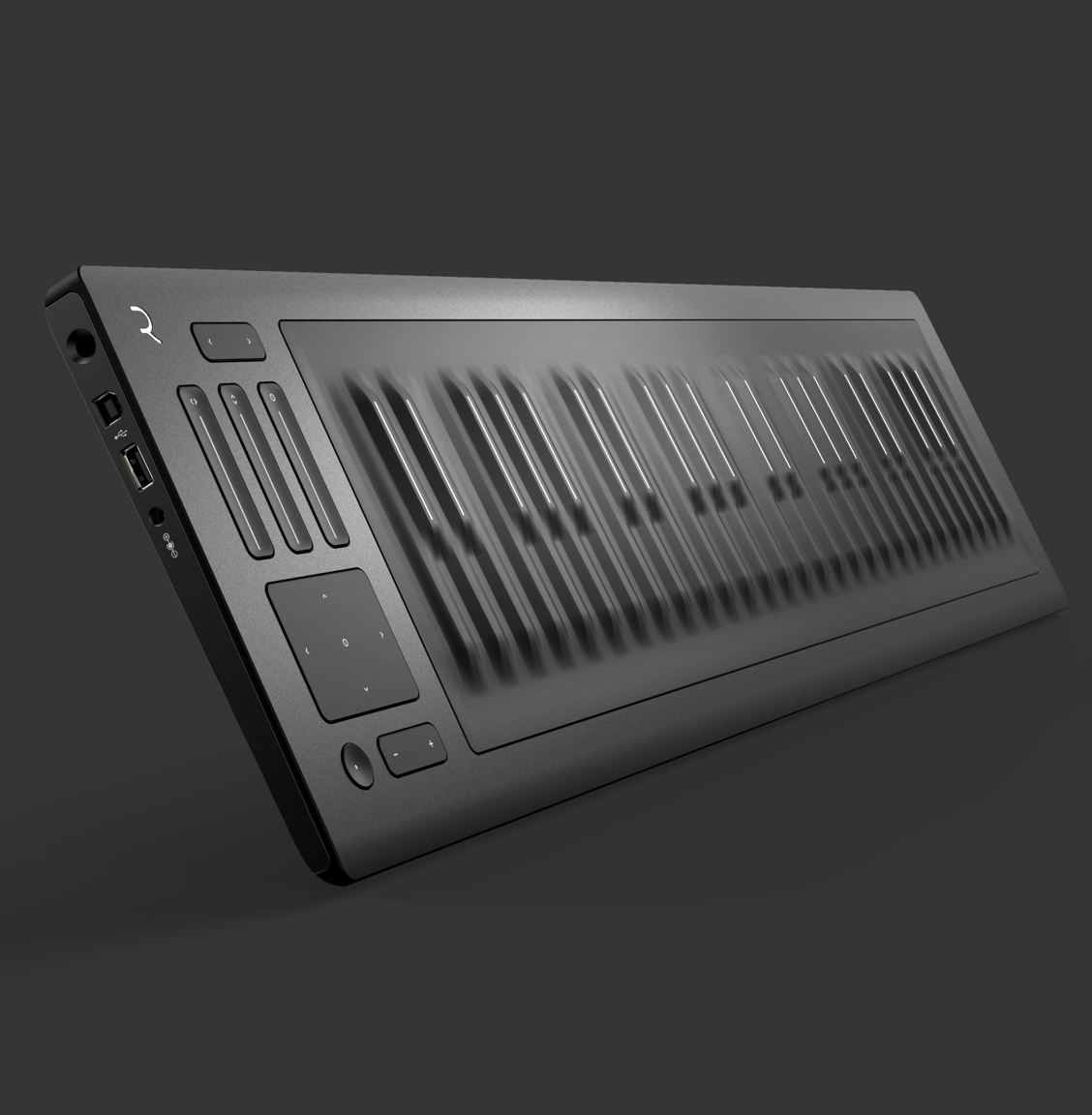The 5 Best MIDI Keyboards on the Market
A MIDI keyboard is an essential piece of studio hardware, whether you’re using one daily or only on rare occasions. Having one on hand allows you to interface with your digital sounds in a more human way, enabling you to perform musical ideas rather than program them.
Many MIDI keyboards include additional features such as faders, knobs, wheels, and pads that you can map to various parameters within your DAW. It’s one of the first pieces of hardware that many producers purchase due to how much it extends their ability to capture creative moments, and it can be one of the least cost-prohibitive to upgrade substantially.
In this roundup, we’ll look at some of the best 25-note, 49-note, and 88-note keyboards, nominating a winner in 5 categories. Most of the products on this list are part of a line of keyboards that come in various sizes, so if you like the features of one, chances are that it may be available in another size.
Every keyboard on this list is going to fulfill the primary role of sending MIDI information to your computer, but it’s the details in the design that make each one unique. A keyboard with all the bells and whistles may seem great, but they can take up space, get in the way, and cost a lot of money. When selecting a keyboard for personal use, it’s important to take a look at your workflow and assess your needs.
Novation Launchkey Mini ($79)
Winner: Best Affordable Mini Controller
The Novation Launchkey Mini is a 25-note velocity-sensitive keyboard with 16 multicolor backlit velocity-sensitive drum pads. It includes two octave buttons, two track buttons, two navigation buttons, an “InControl” button, and two multicolor backlit round buttons. For well under $100 you get a lot. It even ships with Ableton Live Lite 9, Novation Bass Station and V-Station, a 4GB library of samples from Loopmasters, a free Addictive Keys instrument from XLN, and free melodics lessons.
I’ve found that this controller is absolutely perfect for mobile use. I have a full-size MIDI keyboard that I use while in my studio, but I also keep a small 25-note MIDI keyboard in my backpack at all times for when I’m out and about. You never know when inspiration will strike, so it’s best to be prepared.
Never mind the keyboard, the software included with the Launchkey Mini justifies the price. I’m a massive fan of XLN’s products, and a single piano library will run you about $90 from their site. This makes buying a Launchkey Mini the cheapest way to get your hands on your first Addictive Keys library.
Runner Up:
I looked far and wide for another 25-key MIDI keyboard that could compete with the value of the Novation Launchkey Mini. The Akai Professional MPK Mini MKII deserves an honorable mention thanks to the unique joystick controller it offers, but the tradeoff is that there are only 8 drum pads. Functionally, these two MIDI keyboards are quite similar, but I lean towards the Launchkey Mini due to the powerful software that’s included with it.
Nektar Impact LX49+ ($159)
Winner: Best Affordable Mid-Sized MIDI Keyboard Controller
The Nektar Impact LX49+ is another great bang-for-the-buck option for smaller studios. It’s a 49-note velocity sensitive keyboard with multicolor backlit velocity-sensitive drum pads, two-octave buttons, two transpose buttons, 9 faders, 8 knobs, a pitch wheel, a mod wheel, one assignable pedal input, full transport controls, and a screen.
The Impact LX49+ also has built-in integration with Bitwig Studio, Cubase, Digital Performer, Garageband, Logic Pro, Nuendo, Reason, SONAR, Studio One, FL Studio, and Reaper. Keep in mind that since this is a MIDI controller, you can map it yourself to other programs like Ableton.
Shipping with the Impact LX49+ is a copy of Bitwig 8-Track that is geared for digital music creation. It includes the entire collection of Bitwig Studio devices that can be used on up to eight project tracks with audio or MIDI. The upgrade price from the included Bitwig 8-Track to Standard is only $30 less than buying the Standard version outright, which sells for $299, so not a huge discount there.
Nektar has been producing affordable equipment with the same functionality as much more expensive gear for some time now. The build quality of this controller is about what you would expect at this price point. Let’s just say you’re not getting ivory keys, but you are getting a wealth of controls for a great price.
Runner Up:
The Novation Launchkey 49 has 8 more beat pads than the Nektar Impact LX49+, and is laid out quite similarly. This may be a good option if those extra beat pads are important to you. The Launchkey 49 typically costs $40 more than the Impact LX49+, but you can save $30 on this unit through Sweetwater until December 31, 2018, bringing the cost down to around $169.
M-Audio Keystation 88 ($199) and Hammer 88 ($399)
Winner: Best Affordable, Minimalist, 88-Key Keyboard
Perhaps you’re just looking for a keyboard with a lot of keys, and don’t care much for faders, knobs, and beat pads. If so, the M-Audio Keystation 88 provides a full range of 88 notes, a pitch wheel, modulation wheel, one fader, two-octave buttons, and some basic transport controls. This keyboard also ships with a copy of Ableton Live Lite, and SONiVOX’s Eighty-Eight Ensemble virtual piano software. Two pedal inputs allow you to use both a sustain pedal and volume pedal.
If you’re looking for a portable full-size keyboard, or a studio keyboard that won’t take up much space, this could be a perfect option for you. For $199 you’ll be hard pressed to find another keyboard that provides this many notes at this price point.
Runner Up:
The Keystation 88 is only a great choice for synth players and electronic music producers. The semi-weighted keys just won’t cut it for players who expect the feel of a traditional piano-style keyboard. For that market, M-Audio makes another keyboard called the M-Audio Hammer 88 that provides fully-weighted hammer keys. M-Audio took the same slimmed down approach to the Hammer 88’s design as they did with the Keystation 88, making it an ideal choice for the minimalist producer. At $399 it’s twice the price, but still much cheaper than other hammer weighted keyboards on the market.
Native Instruments Komplete Kontrol S88 MK2 ($1039)
Winner: Best High End 88 Key MIDI Controller
The Native Instruments Komplete Kontrol S88 MK2 gives you full control over your Komplete instrument collection with 88 fully-weighted hammer keys and an aftertouch keybed. It also includes many browser controls that let you select instruments and control their parameters through 2 high-res color screens, without looking away from your instrument.
The browser allows you to control not just Native Instruments products, but third-party plugins as well. There’s also a pitch wheel, mod wheel, touch strip for expression control, a 4-directional push encoder for 1-handed sound browsing, RGB lights, and two assignable pedal inputs.
The Komplete Kontrol S88 MK2 ships with a copy of Komplete Select which includes Massive, Monark, Reaktor 6 Factory Selection, Reaktor Blocks Wired, Reaktor Prism, Retro Machines Mk2, Drumlab, Kontakt 6 Factory Selection, West Africa, The Gentleman, Scarbee Mark I, Vintage Organs, Replika, and Solid Bus Comp. Komplete Kontrol, Kontakt 6 Player, and Reaktor 6 Player are included as well.
If you bought all of these separately, these devices would be quite expensive. Additionally, owning Komplete Select will allow you to upgrade to Komplete or Komplete Ultimate for a discounted price.
Reigning in at a heftier $1039, the Komplete Kontrol S88 MK2 provides a software-focused approach to music creation. Its integration with Native Instruments software and select third-party plugins make working with it a very streamlined process. This MIDI keyboard was built with workflow at the forefront of the design process, and I think Native Instruments hit the nail on the head with this one.
It’s worth mentioning that this keyboard doesn’t come with the beat pads and faders found on many other MIDI keyboards. It’s quite clear that this keyboard is meant to integrate with other Native Instrument products like Maschine Studio, and Maschine Jam.
Runner Up:
Staying true to the classic, all-inclusive design approach that most manufacturers are subscribing to, the Arturia Keylab 88 Keyboard Controller includes 13 encoders, 16 pads, 9 faders, Ableton Live Lite, Analog Lab software, and aftertouch technology. This keyboard also includes inputs for an expression pedal, sustain pedal, and aux footswitch. If Native Instruments’ line of products isn’t something you’re interested in, the Arturia Keylab 88 is a great option for $799.
ROLI Seaboard Rise 49 ($949)
Winner: Most Original Design
Looking for something truly unique? The ROLI Seaboard Rise 49 is calling your name.
I’m skeptical of just calling this a “keyboard” because it almost transcends the word. The Seaboard boasts multiple levels of expression through its cutting edge Keywave playing surface which allows you to perform polyphonic pitch bends, and make use of its especially sophisticated aftertouch technology.
Designed for performance, the Seaboard allows you to slide notes in the same way as a ribbon controller, and it comes with a specialty synthesizer called Equator that’s made specifically for the Seaboard. A copy of FXpansion’s STROBE2 is also included with the controller. It’s probably best for you to see and hear what this MIDI keyboard can do for yourself if you haven’t had the pleasure already.
There’s obviously a learning curve that comes along with this controller, even if you already play piano. I didn’t realize this until I tested the unit myself, but the keys were a bit squishier than I was expecting, and felt a bit like some sort of gel wrapped in a solid membrane. The entire device is reminiscent of a keyboard, and if you play piano well I’m sure you’ll pick it up quickly, but there are so many added layers of expression that it allows for that it takes some time to get used to.
ROLI claims the Seaboard is a “5D” experience because you can can strike the keys, press the keys, glide your fingers above or below the keys, slide your fingers up and down the keys, or lift your fingers from the Seaboard. Each of these five actions affects the MIDI signal differently, and the included Equator synth helps make the novel applications of this controller more obvious.
Since you can apply vibrato by wiggling your fingers on each key, I was concerned at first about how accurate the pitch of each note would be. Fortunately, it turns out that pitch is quantized to the nearest semitone when you strike a key, so you don’t need laser-accurate precision to play the instrument.
ROLI also has a free NOISE app that integrates with their Seaboard Block. It allows you to choose from 400+ playable sounds and uses the same 5D touch technology as the Seaboard Rise. Adding this app into your setup lets you extend your performance capabilities with 24 effects including reverb, distortion, delay, beat repeat, and more.
The price point of this unit is significantly higher than many of the other keyboards on this list, but the build quality is exceptional, and it’s so unique in its design that this roundup just wouldn’t feel complete without it. If a competitor with a similar design pops up in the future, it could drive prices down. In the meantime, ROLI is absolutely dominating this side of the market with their line of Seaboard keyboards.
Summing It Up
MIDI keyboards exist to give you control over your software instruments and programs. Everyone’s needs are different based on their preferred workflow, and sometimes it takes a while to figure out what works best for you. Initially, I thought I wanted a keyboard with lots of control, but after buying one, I realized that I prefer to program most of my automation within my DAW. Others may prefer a more tactile approach.
Regardless of your budget, there’s going to be a great MIDI keyboard that falls within your price range. With so many affordable options and so many takes on the format, price can often be a secondary concern in choosing the best controller for you. Identify your needs, match them with the controller that will fulfill them, and you’re certain to improve your workflow.
Charles Hoffman is a Mixing and Mastering Engineer at Black Ghost Audio. After graduating from the University of Manitoba with an English degree, Charles completed his education at Icon Collective in Los Angeles, CA.
Please note: When you buy products through links on this page, we may earn an affiliate commission.







